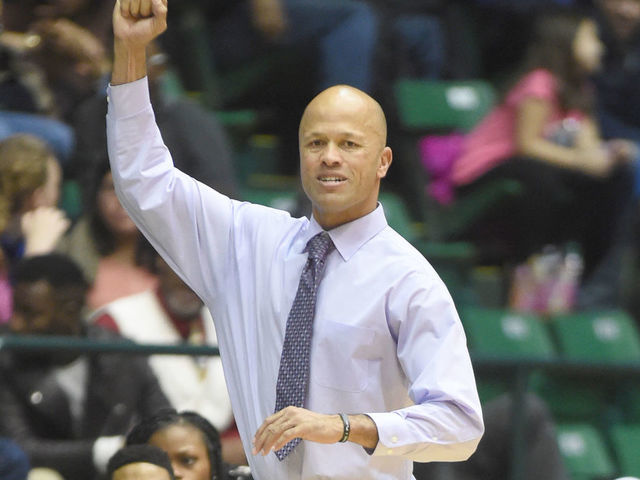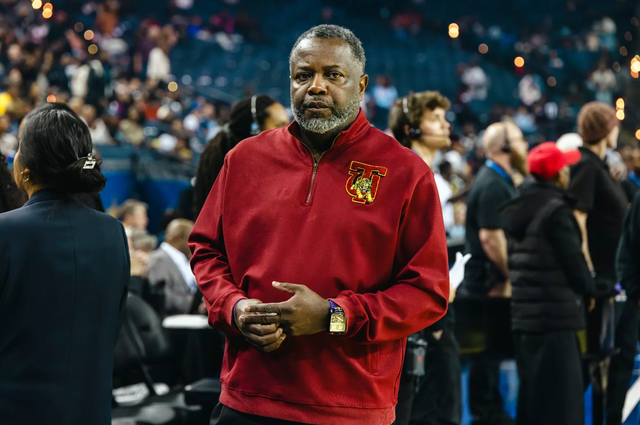Although he never graduated, a former student of Morgan State University has donated millions to the institution. His special reason for giving is something all HBCU students should take note of, whether they are able to cross that stage or not. Get the full inspirational story from Nick Anderson at the Washington Post below!
Calvin E. Tyler Jr. grew up in what he recalls as “very humble beginnings” in Baltimore, went to Morgan State University in his home city in the early 1960s, left school without finishing his degree for want of money, became a driver for United Parcel Service, jumped into management and retired in 1998 as senior vice president after a long and successful run with UPS.

Then he and his wife, Tina, started giving to Morgan State in what has now become a landmark run of philanthropy for the nation’s historically Black colleges and universities.
Their first donation arrived in 2000, $42,744 toward fulfilling a $500,000 pledge. The Tylers kept giving, and their pledges kept rising: another $500,000, another $1 million, another $3 million.
“I wanted to make it possible for a lot of kids from the inner city to go to college on scholarships,” Tyler said.
On Monday, Morgan State announced a new pledge from the Tylers of $15 million. Their lifetime total now stands at $20 million. All will be dedicated to financial aid, with a goal of helping students graduate with little or no debt.
What sets these gifts apart is the source. The $20 million appears to be one of the largest total pledges that any historically Black school has received from a former student (and, in this case, a spouse).
For many predominantly White institutions, spanning the Ivy League, other private colleges and public universities, eight-figure donations from former students are major events but not rare or unknown. The situation for HBCUs, given the nation’s profound racial gaps in economic circumstances, is very different. Their alumni, on the whole, have not amassed the same levels of generational wealth. Many borrowed to pay college bills.

For many predominantly White institutions, spanning the Ivy League, other private colleges and public universities, eight-figure donations from former students are major events but not rare or unknown. The situation for HBCUs, given the nation’s profound racial gaps in economic circumstances, is very different. Their alumni, on the whole, have not amassed the same levels of generational wealth. Many borrowed to pay college bills.
By the former-student measure, the Tyler gifts “will be a record or near-record” for HBCUs, said Harry L. Williams, president and chief executive of the Thurgood Marshall College Fund, which supports HBCU students. Morgan State officials think the total pledge sets an alumni giving record for the sector. Authoritative and comprehensive data on such philanthropic records for the roughly 100 public and private HBCUs is scarce, Williams said.
He predicted that the gifts will electrify HBCU alumni around the country. “Hopefully there will be others out there that do this,” Williams said.
Tyler said he wants others to follow his lead. “You know that old saying: Don’t ever forget where you came from,” he said in a telephone interview from his home in Las Vegas. Tyler, 78, and his 76-year-old wife split time between there and a residence in Contra Costa County, Calif.

“I want to set an example so that others should feel obligated,” he said. “I’d like to see more people come back and support HBCUs.”
Many of the largest gifts to HBCUs have not come from their own former students. Billionaire MacKenzie Scott last year gave $560 million to numerous HBCUs, including record-shattering sums of $50 million to Prairie View A&M University in Texas, $45 million to North Carolina A&T State University, and $40 million each to Howard University in D.C., Norfolk State University in Virginia and Morgan State.
Scott, the ex-wife of Amazon founder and Washington Post owner Jeff Bezos, graduated from Princeton University.
Among former HBCU students, data from the Chronicle of Philanthropy and other sources suggest landmark donations to their schools have tended to be in seven figures — around $1 million to $3 million. One exception: News accounts in 1992 show that attorney Willie E. Gary pledged $10 million to his alma mater, Shaw University in North Carolina.
The Tylers reached the $5 million mark at Morgan State in 2016.
Although Calvin Tyler did not graduate with his Class of 1965, Morgan State regards him as one of its most distinguished alumni. The university awarded him an honorary doctorate in 2004, and it named a new student services building for him and his wife. Tyler Hall, built with state funding, is expected to be dedicated next fall.
“The quintessential Morganite is Calvin Tyler,” Morgan State President David Wilson said. Wilson described the philanthropist as a self-effacing leader and barrier-breaker. “His time at Morgan was cut short, but his dream was not,” Wilson said. “His dream endured.”
Wilson said Morgan State, like other colleges and universities, is “open for investments of any magnitude” and welcomes funding from “the philanthropic community far and wide.” But the Tylers, both Baltimore born, have become a powerful symbol for the university, he said.
“Our students at Morgan, they can touch Calvin Tyler,” Wilson said. “They can leave the campus at Morgan and go two miles into west Baltimore and get to the neighborhood that produced him.”
So far, 222 Morgan State students have received tuition aid as “Tyler Scholars,” according to the university. The new pledge will expand those numbers, targeting students in financial need who keep a grade-point average of at least 2.5.
Morgan State, founded in 1867 for religious education, became a public college in 1939 and is now a research university with about 7,600 students. This year, tuition and fees total about $7,600 for Maryland residents and about $18,000 for those from out of state. Those totals don’t include meals, housing and other expenses.
Most students don’t pay the full price. More than half of Morgan State’s undergraduates have enough financial need to qualify for federal Pell grants. Many are first-generation college students.
By Tyler’s account, he was the first in his family to go to college. His father, he said, was a lineman for the telephone company and his mother a nurse’s aide. He isn’t sure whether either of them graduated from high school. There wasn’t much talk of college in Tyler’s family in the 1940s and ’50s. But he was a strong student and graduated from the prominent public high school known as Baltimore City College.
From there, he said, the obvious choice for an academically driven African American in Baltimore was Morgan State. He enrolled in 1961.
“I had ambitions of getting a degree in business, but I had to pay my own way,” Tyler said. “I didn’t have a scholarship. My parents couldn’t afford to pay tuition. I was basically paying my own way, working several jobs.”
Tyler said he recalls that professors were caring as he took courses in business, accounting, French and other subjects. But he acknowledged that he grew distracted in the pursuit of a bachelor’s degree. He had little time for extracurricular campus activities. Money worries weighed him down when he left the university in 1963. “I lose track of exactly how many credits I had,” he said. “I like to assume I was halfway there.”
He saw a half-page advertisement for UPS in the Baltimore Sun. It intrigued him because it said the company promoted from within. He started driving a truck in 1964, delivering to country clubs, brokerage houses, Johns Hopkins University and other places of wealth far removed from his upbringing in west Baltimore. “A lot of things I had never seen before,” he said.
He stayed with the company, and his career took off. Eventually he oversaw U.S. operations and served on the UPS board of directors and other prominent boards.
Tyler said he knows his own narrative, thriving in the end without a bachelor’s degree, provides a somewhat complicated view of higher education.
“One of the reasons I don’t like to publicize my story,” he said, “is because some young kid might take from that, ‘Boy, I don’t need to go to college.’ That would be the biggest mistake of all. I wish I’d finished. I would encourage young people to get all the education they can.”
He also wants graduates to give back to their schools as soon as possible, without waiting to become rich. “I don’t care if it’s 10 bucks, 20 bucks,” he said. “If you get them in the habit of giving, it will grow over time.”



